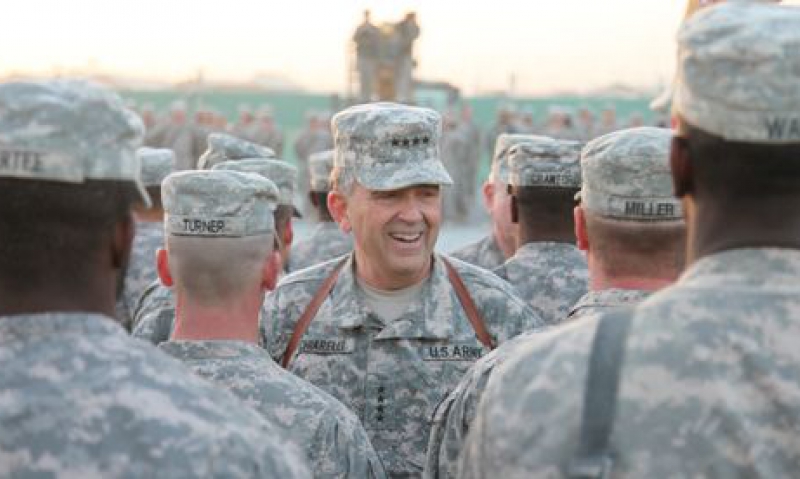
Legion attends deployment stress briefing
Gen. Peter Chiarelli, vice chief of staff for the U.S. Army, gave a briefing Jan. 18 at the Army-Navy Club in Washington, D.C., on the stressful impact of multiple overseas deployments upon servicemembers and their families. American Legion National Commander Jimmie Foster attended the briefing, as well as two Legion division directors: Barry Searle (National Security) and Verna Jones (Veterans Affairs & Rehabilitation).
Chiarelli talked about the incidence of suicides in active and reserve components of the armed forces. Since 2009, studies indicate that while suicides on the active-duty side have stabilized, they have doubled among reservists. He also described the Army’s extensive support network for active troops, including a mandatory, 14-day “decompression” period in which servicemembers are counseled and tested for post-traumatic stress (PTS) and other stress indicators. He compared that to the typical three to five days of demobilization for reserve components.
Further complicating the issue, Chiarelli said, is the fact that reserve component units do not deploy in their entirety. After 10 years of war and numerous deployments, it is necessary to augment active-duty units with numerous reservists. When they return from deployments and demobilize, these “augmentees” return to their home states where there may be little or no support.
The general said that unemployment among reservists is another significant stress factor. He mentioned one returning reserve component unit that had a 25 percent jobless rate facing demobilizing soldiers.
Chiarelli stressed to the group that suicide is not a single-event situation. It is often the result of multiple stress factors that may include drug and alcohol abuse, unemployment, family issues, and PTS from events while deployed. Finally the loss of “adrenalin rush” from the constant watchfulness while in combat may lead to a sense of hopelessness, irrelevance and an overpowering need to escape a situation.
The American Legion has formed an ad-hoc committee to study treatments for PTS and traumatic brain injury (TBI). Headed by Past National Commander Bill Detweiler, the committee will meet Jan. 24-25 in Washington to discuss DoD and VA policies on such treatments.
“By studying the medical treatments that are out there for TBI and PTS, and gauging their effectiveness, The American Legion becomes an even better advocate for the health-care needs of veterans,” Searle said.
The American Legion is also involved with a four-year, congressionally mandated study of treatments and reintegration programs for recovering warriors. Past National Commander David Rehbein is a member of the DoD Recovering Warrior Task Force, and the Legion’s national staff is helping him to conduct research.
